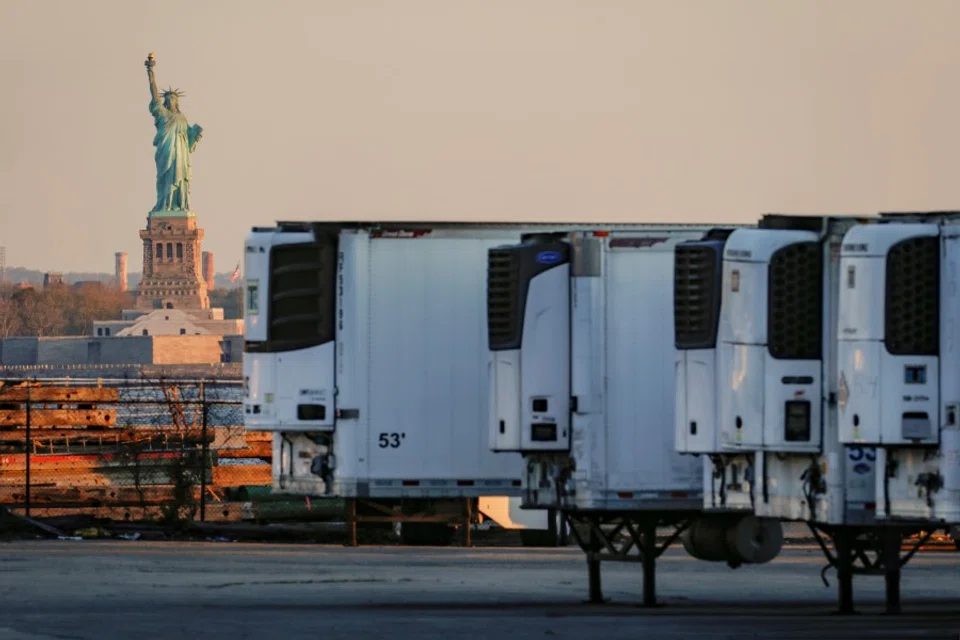China is not the answer to America's problems
Analyst Zheng Weibin compares the current China-US competition to the Cold War, and notes that much of US domestic policy is in fact targeted at China, which perhaps distracts from the real domestic issues that the US should be tackling.

Will the US be the next Soviet Union? The US is working hard to avoid the same fate of declining from a superpower to just a regular power. As to how to avoid that result, US President Joe Biden is looking to US allies and China.
Biden is taking a lesson from the Soviet Union, which withdrew its support of communist countries in central and eastern Europe, and left them to take care of their own national politics.
When former Soviet President Mikhail Gorbachev made that decision, these communist countries were already deep in debt and constantly taking loans from banks in Western Europe. After the Soviet Union abandoned these allies, it did not last any longer than they did.
Going back to allies... for now
After four years under former US President Donald Trump, who similarly abandoned US allies, the Biden administration is actively going back to traditional ways and declaring to its allies that the US government's stand has not changed. However, Biden's friendliness towards allies comes with a price - these Western countries (including Japan) have to be on the US side in opposing China and see it as the biggest threat, albeit not yet an enemy. This has given Europe some pause, because its biggest threat is not China, but Russia.
Biden sees China as a panacea for the US to avoid becoming the next Soviet Union - as long as it wins against China, the US will continue to hold on to its status as a superpower and lead the world order.

Since the Biden administration came in, China has been its biggest target, and it was a topic at the recent G7 and NATO summits. Biden sees China as a panacea for the US to avoid becoming the next Soviet Union - as long as it wins against China, the US will continue to hold on to its status as a superpower and lead the world order.
But China is not a panacea for the US or other Western countries. Indeed, China's rise has put enormous pressure on traditional Western countries. Its style of governance is clearly different from traditional Western countries, and its alternative route has brought the traditional US-led political system into question. In particular, as inequality spreads in these countries, China's approach seems to be more appealing.
Cold War framework won't work with China
To Biden and others, the competition of systems between China and the US is a competition between democracy and autocracy. Although the US government does not want to see it as a resurrection of the Cold War, comparing democracy and autocracy is undoubtedly a resurfacing of such a relationship. And so, seeing China as the biggest competitor of the US and continuing to bring back the policies and strategies that the US used on the Soviet Union in the previous century would make defeating China and winning another political victory a matter of course.

But to outsiders, there is a huge doubt whether repeating the same policy and approach will work. The most crucial point is that China is not the Soviet Union, whose GDP never exceeded half of the US GDP - in contrast, China's GDP last year was over 70% of the US's GDP. Also, globalisation has bound China with the world, while the Soviet Union never integrated with the Western economies.
All this is important, but the key reason why China is not a panacea for the US is that the US's current domestic problems are fundamentally issues of the West. The US's need for a panacea is not due to the rise of China and other countries, but the rise of inequalities at home. And even if the challenge did not come from China, it would come from other countries.
The question now is, does Western society still have this ability to adapt, and is Western society still open enough to nurture such adaptability?
Domestic issues root cause of the US's decline
Since the 2008 financial crisis, many events and trends have exposed the social problems in the US and other Western countries, but nothing has changed. Even if China is an autocracy as Biden and others think, the existence of autocracy around the world is obviously not the cause of the domestic issues in the US and other countries. One might even say that the very different results of democracy and autocracy amid globalisation shows the inherent contradictions in the capitalist system.

If Biden and others look at the advantages of Western capitalism and democracy, what they should take from it is that the capacity for institutional innovation and for constantly adapting to the times has ensured the vibrancy of Western societies. The question now is, does Western society still have this ability to adapt, and is Western society still open enough to nurture such adaptability?
Besides the end of the Cold War, one important reason for the growth in the number of democracies around the world in the 20th century was global connectivity as a result of open communities. Such communities promoted globalisation and openness in global rules and order, which laid the foundation for the elevated status of Western countries. However, unrestrained openness easily leads to an over-concentration of wealth and power, which in turn may lead to manipulation or disruption of the democratic system.
Populism backlash
The global populism sparked by the 2008 financial crisis was the people's response to the violation of their political and economic power. But whether Europe or the US, even when it was led by the well-meaning Barack Obama as president, none were able to change the reality that the US economy and politics were led and influenced by Wall Street. And things got worse - during Trump's time, there began to be strong resistance to migrants in the US, which was an open society. Trump's wall at the Mexican border showed a tightening and rejection of openness among the US population.

To all these points, China is not the answer. If, as Biden firmly believes, the competition between China and the US is one between autocracy and democracy, and autocracy is full of flaws - that is, there is unequal political power and a lack of openness unlike Western societies - then sooner or later China will face a bottleneck and find it hard to keep developing.
In particular, when China first raised the idea of "dual circulation", many people were worried that China would go back to being a closed country. But if everything is like Biden and others think, all the more the US should now put its energy into resolving its domestic political and social problems; instead, competition with China is an important basis of the Biden administration's domestic policy. Large-scale infrastructure construction is to contain China, while reviving the US manufacturing sector and ramping up high-tech capabilities is to avoid falling behind China in technology. In other words, US domestic politics is Biden's foreign policy.
Going back to the Soviet Union abandoning its allies in central and eastern Europe, was that truly the intention of Gorbachev and the other Soviet leaders? One important reason why the Soviet Union was unable to help these communist countries was that it was facing domestic pressure, particularly in terms of a weak economy. Reconciliation with the US was a necessary move to resolve its issues.
China is not the answer to the problems of the US, nor should it be an enemy of the US, and vice versa.





